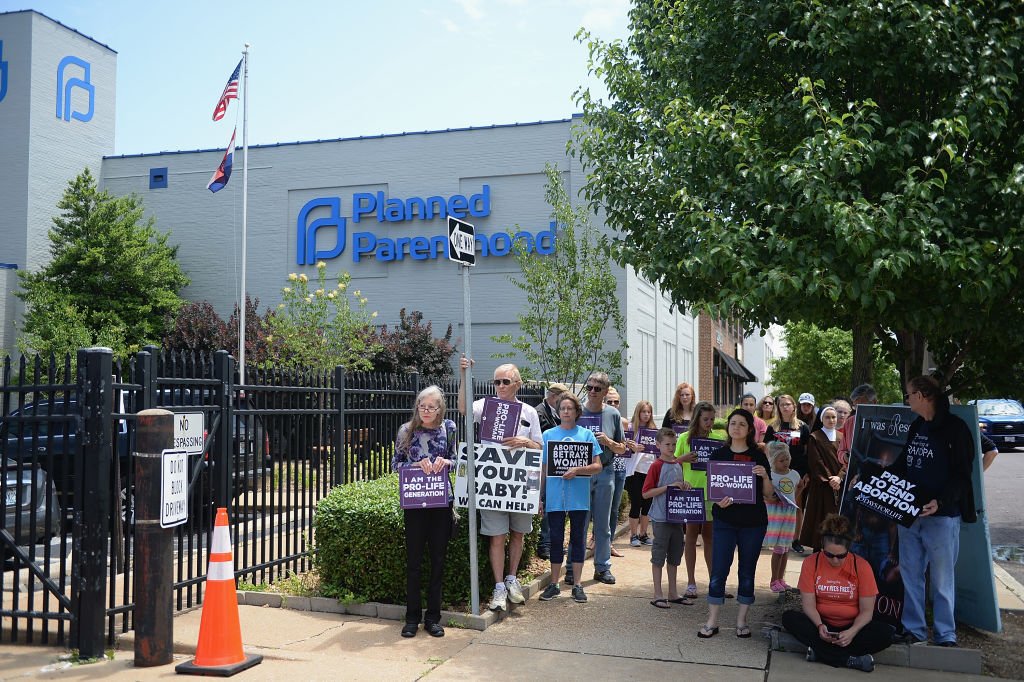abortion
Planned Parenthood Faces Closure of Hundreds of Clinics, Threatening Abortion Access Nationwide

Reproductive health advocates are raising alarms over a proposed budget reconciliation package in the U.S. Senate that could effectively serve as a nationwide abortion ban. If passed, it would cut federal funding for Planned Parenthood, potentially eliminating access to 1 in 4 abortion providers.
The Republican-led bill is over 1,000 pages long, containing extensive tax cuts predominantly favoring the wealthy alongside deep spending cuts to social services, including Medicaid. A key provision on page 339 prohibits Medicaid funding for any sexual and reproductive health clinics providing abortions if they received over $1 million in federal and state Medicaid funding in fiscal year 2024. While a few independent clinics might meet that budget threshold, it primarily targets Planned Parenthood.
Planned Parenthood clinics heavily depend on Medicaid funding—not for abortions, which are restricted by federal law, but for essential reproductive health services like cancer screenings and STI treatment. Approximately 2 million patients utilize these services annually, and 64% of Planned Parenthood clinics are located in rural or underserved areas.
According to a spokesperson, Medicaid patients constitute half of the total volume at Planned Parenthood clinics. Any funding cuts could jeopardize their financial viability. Preliminary estimates suggest that 200 clinics across 24 states are at risk of closure, with 90% of those located in states where abortion remains legal.
The Congressional Budget Office forecasts that the bill, dubbed “One Big Beautiful Bill,” could lead to nearly 11 million Americans losing health insurance by 2034 and add $2.4 trillion to the federal deficit over the next decade.
Alexis McGill Johnson, CEO of Planned Parenthood Action Fund, has been actively lobbying senators to oppose the bill due to its disproportionately negative impact on rural health facilities. She urges constituents to contact their representatives about the potential consequences.
This defunding initiative is celebrated by various anti-abortion groups that have long pursued such measures. Americans United for Life recently characterized this moment as a “crossroads” for abortion rights in America, while Susan B. Anthony Pro-Life America expressed that the budget provision is in line with efforts dating back to 2015.
Planned Parenthood has already shuttered several clinics, including eight in Iowa and Minnesota, partly due to a freeze on Title X family planning funding. Dr. Sarah Traxler from Planned Parenthood North Central States notes that such disruptions have real consequences for patient access, especially in a fragile healthcare ecosystem.
The freeze affects 865 Title X clinics across 23 states, resulting in significant access loss for approximately 842,000 patients. Clare Coleman of the National Family Planning and Reproductive Health Association highlighted that detrimental effects on care access are now emerging, with unintended pregnancy and STI rates poised to rise.
Some clinics are already feeling the strain as patients travel longer distances for critical services. A Maryland abortion clinic, Partners in Abortion Care, experiences significant financial challenges, primarily due to low Medicaid reimbursements. Co-founder Morgan Nuzzo emphasizes the growing chaos surrounding the accessibility of abortion services.
As changes unfold, challenges in accessing routine gynecological care are expected to compound, complicating the landscape for patients nationwide. With uncertainty surrounding the future of funding and healthcare availability, the stakes have never been higher for reproductive health services in the United States.


















